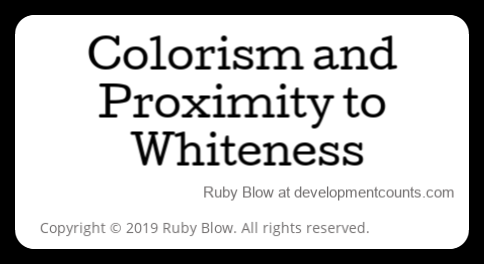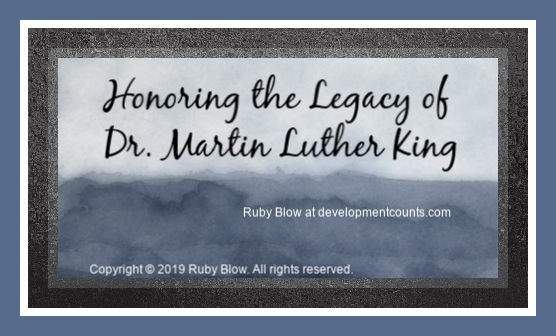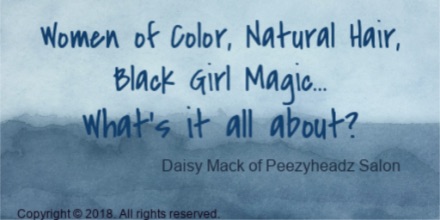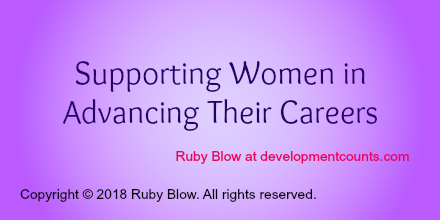The Messengers
Today I had an exchange with a black woman who is a fellow counselor. In our dialogue she made a statement aligned with a very privileged perspective. My initial reaction was shock. But then when I considered the limited information I had about this fellow counselor and her apparent limited information about me, it seemed me that she was not just speaking on behalf of herself, but on behalf of someone with a powerful voice in my profession (albeit not a member of my profession).
Her statements were familiar…I heard similar statements from two black men at the ACA conference in Atlanta (also counselors in Georgia) as well as another from a black woman counselor weeks prior in an email exchange.
The common thread in these statements were echoes of a privileged perspective. A perspective that is more interested in advancing an organization than the people it is meant to serve. The comments are like a set of talking points that people create when they are enlisting people to help them dispatch a message and persuade others. I am well versed in the language of persuasion and deconstructing information. So while those talking points may convince others, they don’t convince me.
These (talking point) statements have elements of truth, but require you to suspend your own independent thought. They are statements that encourage you to deny your experiences in favor of a person or organization that benefits from you pushing down your lived experience.
Abuse of Power
When people abuse power, an important element of maintaining the abusive relationship is to remind you of all that they have done for you and how no one else was there. Never mind their role in positioning themselves to be the only person you had to rely on. Never mind if what they have done for you is part of their duty and a role that they have chosen.
It is no different when organizations abuse power. When organizations actively make decisions that are detrimental to their staff or membership…the justifications almost always include a reminder of all they have done for you as an employee or a member.
When you are a racial minority and a member of a profession like counseling, I think you have an extra responsibility to speak up and advocate for what is right. I think I have that responsibility because there are some shoes I am better able to place myself in. I speak about issues that I think are harmful to all counselors. I also speak up about issues that I think are detrimental to counselors who are racial and ethnic minorities.
An Informed Commentary
Last week, I wrote a blogpost about my concerns about the National Mental Health Counselor Exam and my concerns about how it is and will impact the profession. Specifically, my concern that this test is disadvantageous to the breadth and depth of counselor identity. I simply don’t agree that all counseling should be or is clinical counseling. I don’t expect that my opinion will change the trajectory of the profession.
However, I operate within my right to express my perspective. My right to say “Hey wait a minute…I don’t think this is good for all of us.” What about the school counselors, career counselors, and the countless other counseling specialties that are being left behind in the name of progress and parity. This is not a mistake that I think is unique to Georgia…it is a trend in our field that will likely never be reversed.
The “Self” Focused Nature of Privilege (and not in a good way)
The most privileged of the statements I have been hearing goes something like this “If counselors in Georgia want to speak on matters or have a voice…they should go to the composite board meetings…the professional association meetings…they should volunteer and they should come down to the state capitol…” Other statements suggest “Look at all that (fill in the blank) has done for us….you have benefited…” They are essentially saying that you are not grateful.
These types of statements take me aback. It is the height of privilege to suggest that counselors who do not attend meetings and gatherings don’t care about the profession.
- Many counselors are working and don’t have enough ongoing income to permit them to regularly miss work. They save those days for continuing education, etc…
- Many counselors volunteer for organizations in need, despite the fact that they can barely afford to not get paid for their time.
- Many minority counselors have high levels of student loan debt…they focus their days off on time with their families and/or much needed breaks from very challenging yet rewarding work.
- Most counselors presume that their professional organizations will work on their behalf without having to look over their shoulders to assure that no harm is being done.
- Still other counselors have already been bitten by the hand that feeds them and have chosen self preservation over blind follower-ship.
Counselors are good at heart and expect that their best interests are being regarded by those organizing on their behalf. Where are the checks on power? What happens when the people charged with overseeing the profession essentially abandon the post in order to be agreeable or even worse, because they don’t see that anything is wrong.
It is the height of privilege to suggest that if someone or some organization has done a lot for you…your gratitude should know no end and that you are disloyal for pointing out when a person or organization has wronged you or is in the wrong.
Why People Align with Power & Privilege
People align with power for many reasons, mostly because it makes them feel strong. In other cases, because it makes them feel right and capable and important. In some cases they align with power because they fear loss; loss of a relationship, loss of affiliation and belonging. Other times, they align with power and privilege because they have not had the experiences others have had. This type of alignment with power-at-all-costs comes with a cost. In some cases, the price is a loss of integrity and porous boundaries and self concept. The results are a remarkable lack of empathic regard and a loss of respect for differing people and opinions.
They can’t believe that a person or organization is or could cause harm until they have experienced it personally.
I, for one, can’t un-know the countless first-hand accounts from my peers. Power unchecked leads to corruption. When Counselors swallow ideas and beliefs whole without cultivating their own understanding of what’s right or wrong and the complexities in between…there is a problem.
Many Voices
When a counselor tells me that we should all have one voice and stand together with absolute disregard for my lived experiences, I am reminded about how privilege works and why people align with privileged ideology. Basically, a privileged stance is one that does not open to a differing perspective – particularly if it is a minority perspective. In this I mean minority in the truest sense of the word. The idea that if only a few people are concerned…it can’t be that big of a deal.
The thought “It can’t be that bad….you seem like you’re doing just fine for yourself” is a statement with the limited belief that if I am so called “doing alright” then I don’t experience hardship and I can’t be concerned with the hardships of others. That is the audacity of privilege….expecting someone not to care about upholding the highest values of a profession because they don’t see what you see and experience that the profession is at risk.
Copyright © 2018 Ruby Blow. All rights reserved.
Share your thoughts on Linkedin, Facebook, Twitter or log in to one of your accounts below to comment. Subscribe to my YouTube channel.





